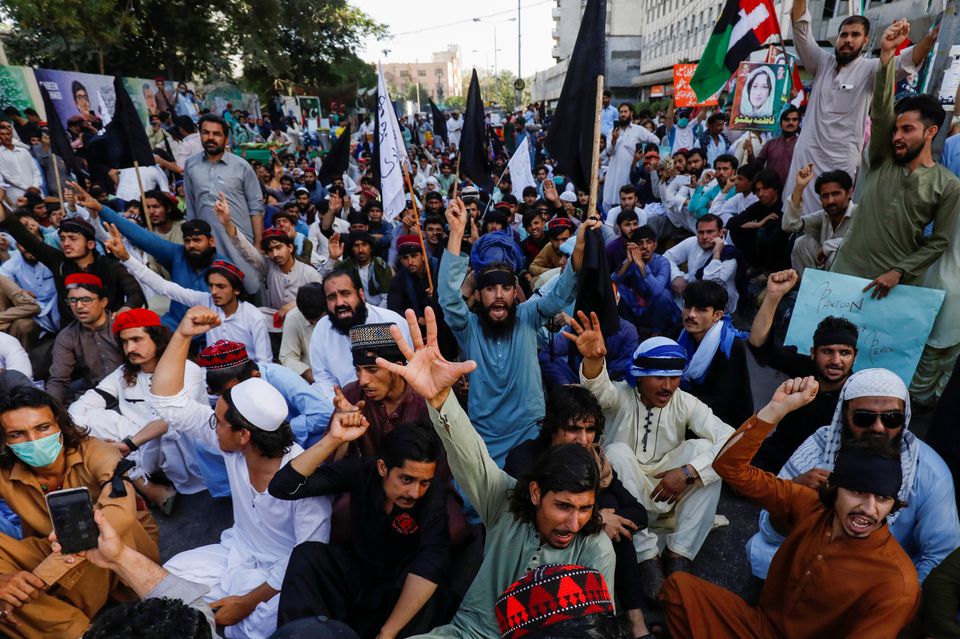
While Pakistan’s economy hangs on to dear life waiting for the stalled IMF bailout package and playing a global victim, domestically it has unleashed a new surge of violence on the already oppressed people of Khyber Pakhtunkhwa (KPK). Human rights issues in KPK should make the donors question and review the grounds for such a donation.
The government has been incessantly violating fundamental civil rights such as the freedom of association and free speech. The militant violence on them ranges anywhere from torture, extrajudicial killings, and sexual abuses against women, children, and transgender to enforced disappearances. The ethnic minorities especially are at the mercy of the majority Muslim rule who have avowed to “cleanse” all villages for the creation of Al-Bakistan – a Punjabi concept quickly gaining popularity aimed to Arabicise and purify the region.
The dissolution of the KP assembly has the political situation in chaotic place. Uncertainty is the order of the day and that has motivated the locals even further to run wild. At the same time, the Pakistan government and the Army (interchangeable concepts), readily turn a blind eye.
Since the beginning of the year, more than 14 activists and human rights defenders have been killed and a dozen are missing after being abducted by the military or intelligence agencies while they were holding peaceful protests requesting the right to live in dignity. Pak Army has made it a sport to pick up innocent people to be tortured or detained without any charge.
The Pashtun and Baloch people have always been the most vulnerable targets. The recent figures released by COIOED in July 2022 revealed that 8696 missing cases were reported, out of which 6513 cases were solved while 2219 are still pending. Of course, there is a larger number of unreported cases of people who will never return and will be buried in unnamed graves.
According to the Pashtun Tahaffuz Movement (PTM) chief, Manzoor Ahmed Pashteen, over 5000 people from Pashtun ethnicities are still missing. The helpless families of these people have no one to turn to except the PTM. When the PTM tries to represent this cause, they are dealt with strict measures.
While Muslims may still be spared, religious and ethnic minorities are treated as second-class citizens. Besides the torture and abuse, they are discriminated against in all spheres of life. Today, when Pakistan is facing severe food shortages and surviving an extra day, is a miracle, minorities are at the bottom of the list. Retailers do not even entertain them and their turn never arrives. At this point, quite literally they are living a life equal to animals.
Though Article 20 of Pakistan’s Constitution allows citizens to profess and practice their religion, the reality is quite different. The recent tightening of the Blasphemy laws has these minorities on their knees. Blasphemy is considered a criminal offense under Section 295-C of the Pakistan Penal Code, and people who are non-Muslims can be charged solely based on hearsay. Due to this, members of the Hindu, Sikh, and Christian communities have to face mob violence daily. It has been made very easy to target them and write their death sentence without having committed the crime.
After the Taliban took over the Tirah Valley in Orkazi Agency, they introduced jizya, the tax levied on non-muslims by the state, on the Sikh community. Upon refusal to pay the tax, the properties of 11 Sikh families were destroyed. Jaspal Singh, a Sikh man from the Khyber Agency was beheaded for this reason.
A social worker from KPK, Radesh Singh, reports that over 60 percent of Peshawar’s 30,000 Sikhs have taken off from the province to either resettle among more accommodating people of Pakistan or managed migration to India within the last 5 years. Voices against the human rights violations in KPK have finally spurred momentum. People have responded to the violence with a series of peaceful demonstrations throughout Peshawar, Swat, Waziristan, and other parts of the province. The minority diaspora from the province living in Europe is urging international human rights protectors to spread awareness about the abuse against these people in Pakistan. Pakistanis are expressing frustration against their government’s failure to protect people’s lives and property and criticizing the military’s role in the failing security of the region. The country’s crises so far have not persuaded the leaders to pause and take a look at the damage they have caused. It’s not hard to imagine the time when the Pashtun and Baloch uprisings will destabilize the establishment, and openly challenge the balkanization of the country, and rightly so.








